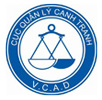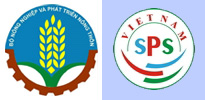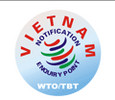 The door for Vietnamese vegetables and fruits to enter the Chinese market is wide open on the official quota. Businesses and localities continue to promote investment and improve quality to not be excluded from the race to enter this potential market.
The door for Vietnamese vegetables and fruits to enter the Chinese market is wide open on the official quota. Businesses and localities continue to promote investment and improve quality to not be excluded from the race to enter this potential market.
The potential is still huge
Dong Nai province has just held a ceremony to announce the official export of the first durian shipment of the province to China under the Protocol signed between the Ministry of Agriculture and Rural Development of Vietnam and the General Administration of Customs of China. With the participation of 6 enterprises exporting 20 containers with a total weight of 360 tons, the event marked a new development step for Dong Nai in exporting durian in particular and agricultural products in general to the Chinese market. Previously, a similar event for fresh bananas was also organized by this locality.
Tu Chau, Deputy Consulate General of China in Ho Chi Minh City, said that Chinese people love to eat tropical fruits, including durian. Chinese people are estimated to consume more than 1 million tons of durian annually. This year, Vietnam's durian export turnover to China is expected to reach more than 1 billion USD.
Luong Van Tai, Trade Attaché, Trade Office of the Vietnamese Embassy in China, said China's import demand for goods is very large. In 2022 alone, it imported 236 billion USD, up 7.4% compared to 2021. Notably, many agricultural products and foodstuffs have import turnover of over 10 billion USD/year, such as seafood, fruits, cereals, soybeans, cooking oil, beef, and milk.
Vietnam is currently ranked 10th among countries exporting agricultural products to China, export turnover in 2022 will reach over 6 billion USD but only accounts for about 2.6% of the country's total import value of agricultural products. . Particularly for fruit and vegetable products, Vietnam is in the group of 3 countries with the largest export turnover to the Chinese market, after Thailand and Chile.
According to Luong Van Tai, China's consumption and import demand for tropical fruits is still very large and growing every year; It is forecasted that by 2026, the consumption and import of fruit will reach 319 million tons and nearly 15 million tons, respectively. Besides, the potential market for tropical agricultural products in the northern and northeastern regions of China is still great, which is an opportunity for many kinds of agricultural products, fruits and foods of Vietnam.
"Key" is quality
It can be said that the door to the Chinese market is very open for Vietnamese agricultural products, but to enter this market sustainably, many conditions and standards need to be met when entering the Chinese market. Technical measures are applied more, food hygiene and safety standards and animal and plant quarantine are tightened.
According to Luong Van Tai, Chinese people, especially urban consumers, are increasingly interested in healthy, high-quality products with clear origins. Vietnamese enterprises need to organize production according to VietGAP and GlobalGAP standards and strengthen management and supervision of food quality, safety and hygiene; comply with regulations on quality standards, quarantine, packaging, and traceability. Focus on branding to take advantage of geographical location. Production cost, transportation, and diversified tropical products to exploit and meet the needs of this market to the fullest.
Recognizing these new requirements, localities and enterprises exporting agricultural products are actively investing in raw material areas and farming processes to ensure the output quality for products to meet the requirements of importers.
Thuy Fruit One Member Limited Liability Company has built a material area of over 1,200 hectares in Tien Giang, Dong Nai and Binh Thuan provinces as one of the official durian exporters to China. Le Thi Bich Thuy, Director of Thuy Fruit Company, said that to ensure the quality of durian fruit in each growing area, the company arranges technical staff to guide growers to cultivate and manufacture according to the standard.
According to Thuy, before Vietnam and China signed the Protocol, the company exported many durians to China through a small quota. Since the signing of the Protocol, the export activities of enterprises have been more stable, and the price is also stable, helping enterprises to feel secure in investment and production. Currently, the company exports about 5-8 daily containers, equivalent to 90-150 tons. It is forecasted that by the end of the season, export output will reach about 150,000 tons.
Vo Van Phi, Vice Chairman of the Dong Nai People's Committee, also said that Dong Nai had made a methodical investment in producing key fruits, especially focusing on building, developing and managing to Manage the growing areas well to meet the importing country's requirements fully. Growing areas and packing facilities are monitored under the guidance of specialized technicians. Enterprises, people and management agencies meet the requirements of logging, production records and pre-harvest food safety monitoring programs required by the Chinese side. In addition, inspect the origin of goods related to the growing area code, the code of the packing establishment, and the technical requirements for packaging and labelling.
In Dong Nai province, there are currently 140 growing areas that have been granted codes, with 82 establishments packing agricultural products for export to markets. In particular, the Chinese market has 103 growing area codes, including fruits: durian, mango, rambutan, banana, jackfruit, and dragon fruit. According to Phi, the official export will motivate farmers to change their perception, production process and farming practices. This also helps to form links and cooperatives to expand the scale of farming and production. At the same time, it opens up opportunities to access scientific and technical advances worldwide and technical requirements in production, improve productivity, quality and income for farmers. These factors will create sustainability in production, consumption and farmers' income.
Source: VCN
Keywords: fruit and vegetable, china, exports, quality



















